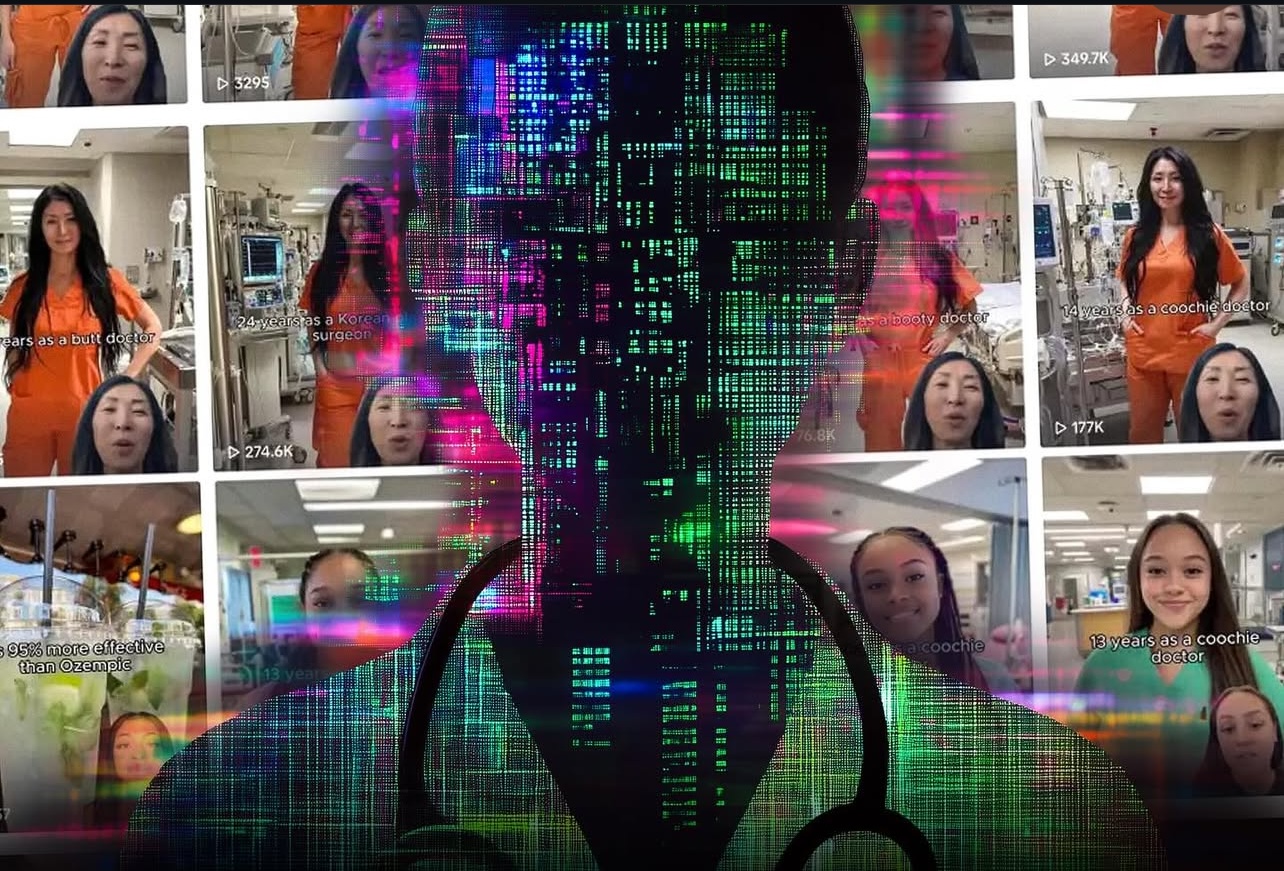AI-Generated ‘Doctors’ on TikTok: Spreading Misleading Health Advice
Across social media, particularly on platforms like TikTok, a troubling trend is emerging: AI-generated personas are posing as medical professionals, dispensing health advice that lacks credibility and may even be harmful. These deepfake avatars, capable of mimicking human appearances and speech patterns, are claiming expertise in fields such as gynecology, nutrition, and plastic surgery.
This phenomenon has triggered widespread concern among healthcare professionals and the public, who fear the potential damage from inaccurate and misleading information. The use of AI to create these ‘doctors’ highlights both the rapid advancements in artificial intelligence and the need for heightened vigilance among social media users.

The Rise of Deepfake ‘Doctors’
Several factors contribute to the proliferation of these AI-created medical personas:
- Sophisticated Technology: Advances in AI have allowed for the creation of highly realistic avatars that mimic human expressions and speaking styles, making them appear authentic.
- Fabricated Credentials: Many of these AI-generated ‘doctors’ present themselves with fake degrees or credentials, giving them an air of authority.
- Multiple Accounts: Some of these personas maintain multiple profiles across TikTok, widening their audience reach and making it harder to identify and track them.
One notable example involves a self-proclaimed ‘coochie doctor’ who offers dubious advice on women’s health. Other accounts promote unverified health supplements or encourage potentially dangerous cosmetic procedures. The ease with which these accounts can be created and the wide reach of social media platforms mean these deepfakes can rapidly spread misinformation.
Dangers of False Medical Advice
The consequences of this trend are significant:
- Potential Health Risks: Users might follow untested treatments or disregard legitimate medical interventions, risking severe complications or delaying necessary care.
- Erosion of Trust: The spread of misinformation undermines faith in genuine healthcare professionals and reliable medical resources.
- Vulnerable Audience: Young people, who make up a large segment of TikTok’s user base, can be particularly susceptible to accepting these convincing, yet false, claims.
“People turn to social media for quick advice, but in doing so, they are exposed to misleading information that can seriously compromise their health,” warns Dr. Williams, a board-certified physician.
Spotting AI-Generated ‘Doctors’
It is essential to recognize the characteristics of these deceptive accounts:
- Check Credentials: Verify the medical professional’s affiliations, board certifications, and contact information.
- Look for Inconsistencies: Be alert for awkward facial movements, mismatched audio, and vague background details.
- Consult Multiple Sources: Always validate advice by checking reputable medical websites and consulting licensed healthcare professionals.
Platform and Public Response
TikTok has introduced measures to combat misinformation, including labels and content moderation. However, the continuous evolution of deepfake technology presents new challenges for identifying and enforcing its policies.
Social media experts advocate that users report suspicious accounts and educate themselves on how to recognize deepfakes. Likewise, government agencies as well as medical associations are urging the public to confirm health information from official channels.
Conclusion
As AI continues to develop, the risk of encountering deceptive material on social media will likely increase. Users must exercise caution, particularly when encountering medical and health-related advice. By verifying credentials, consulting trusted professionals, and maintaining skepticism towards sensational claims, the public can help lessen the damage caused by AI-generated ‘doctors’.


